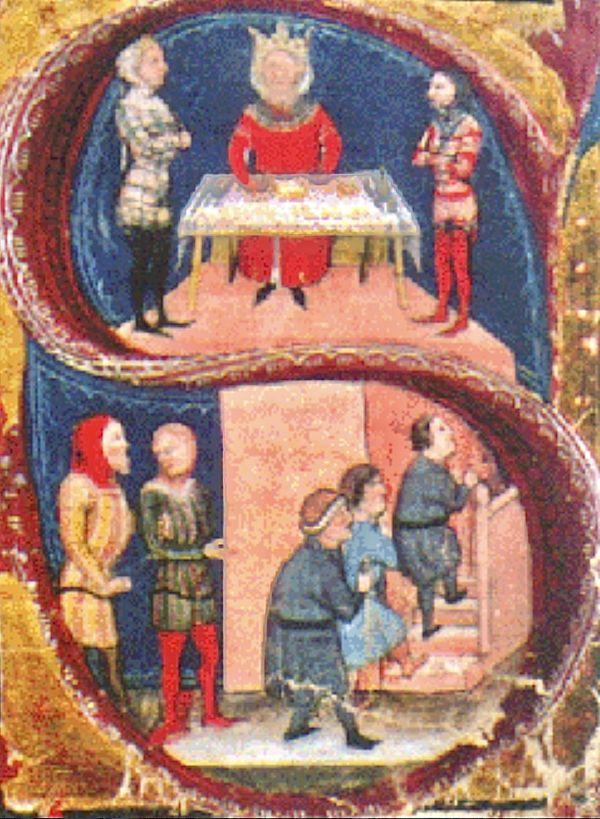[Institution's transience? What about compactness? What about expansion?]
(Mk 9:30-37)
"A little boy was playing at being a priest with a boy his age on the steps of his house. All went well until his little friend, fed up with just being an altar boy, climbed to a higher step and started preaching. The child rebuked him sharply: 'I can only preach! You can't preach! My turn! You spoil the game, you are bad!' Summoned by the shouts, his mother intervened and explained to the child that out of duty of hospitality he had to allow the other to preach. At this point the child sulked for a moment, then brightening up he climbed to the top step and replied: 'All right, he can continue preaching, but I will do God' [...]".
(B. Ferrero, La Scala, in: C'è Qualcuno Lassù?, p.24)
The mentality of precedence and supremacy was ingrained to the point that even in Paradise hierarchies were said to exist.
But «Son of Man» already designates in First Testament the character of a holiness that surpasses the ancient fiction of rulers, who would pile on top of one another reciting the same script.
Instead, in the Kingdom of Jesus there must be a lack of ranks - which is why the plan of the most ambitious Apostles does not match His.
«Son of man» is the person according to a criterion of humanisation, not a beast that prevails because it’s stronger than the others (Dan 7).
Every man with a heart of flesh - not of wild animal, nor of stone - spontaneously identifies himself with the «paidìon» (vv.36-37): a house servant, the shop boy.
The term [diminutive] designates the person who is always attentive to the needs of others, who makes himself available.
It alludes precisely to the dimension of holiness transmissible to anyone, but creative like love, therefore all to be discovered!
Jesus embraces an 8-12 year old boy who counted for nothing at that time - in fact, a house valet, an attendant.
It is the only identification Jesus loves and wishes to give us.
«If anyone wants to be first» (v.35): the Master does not exclude our right to do something great... but He doesn’t identify it with having, power and appearance.
Rather, it relies on our freedom to give, to go down and to serve - a work of emancipation entrusted first and foremost to the top of the class (vv.31-35).
The Lord makes us reflect on authentic fulfilment.
It is not an external conquest, but an intimate and made part of oneself.
It is thus able to sculpt our profound identity, in its richness of faces and in the time of a Path.
Aristotle stated that - beyond artificial petitions of principle or apparent proclamations - one only really loves oneself. This is no small question mark.
Granted and ungranted, the growth, promotion and blossoming of our qualities lies within a wise Way, an even interrupted journey that knows how to allow itself the right pace - even to encounter new states of being.
Genuine and mature love expands the boundaries of the ego-loving primacy of self, visibility and return, understanding the You in the I.
Itinerary and Vector that then expands capacities and life. Otherwise, in all circumstances and unfortunately at any age, we will remain in the puerile game of those who scramble up the steps to prevail.
As Pope Francis said about the mafia phenomena: «There is a need for men and women of Love, not honour!».
The Tao Tê Ching (XL) writes: «Weakness is what the Tao uses». And Master Wang Pi comments: «The high has the low for a foundation, the noble has the vile for a foundation».
Thus the ‘personal’ flows into the plural and global.
To internalise and live the message:
In the balance of nature, have you ever seen a plant that lives only in the light? Or a creature that did not have its shelter in the shade?
[Tuesday 7th wk. in O.T. February 25, 2025]












